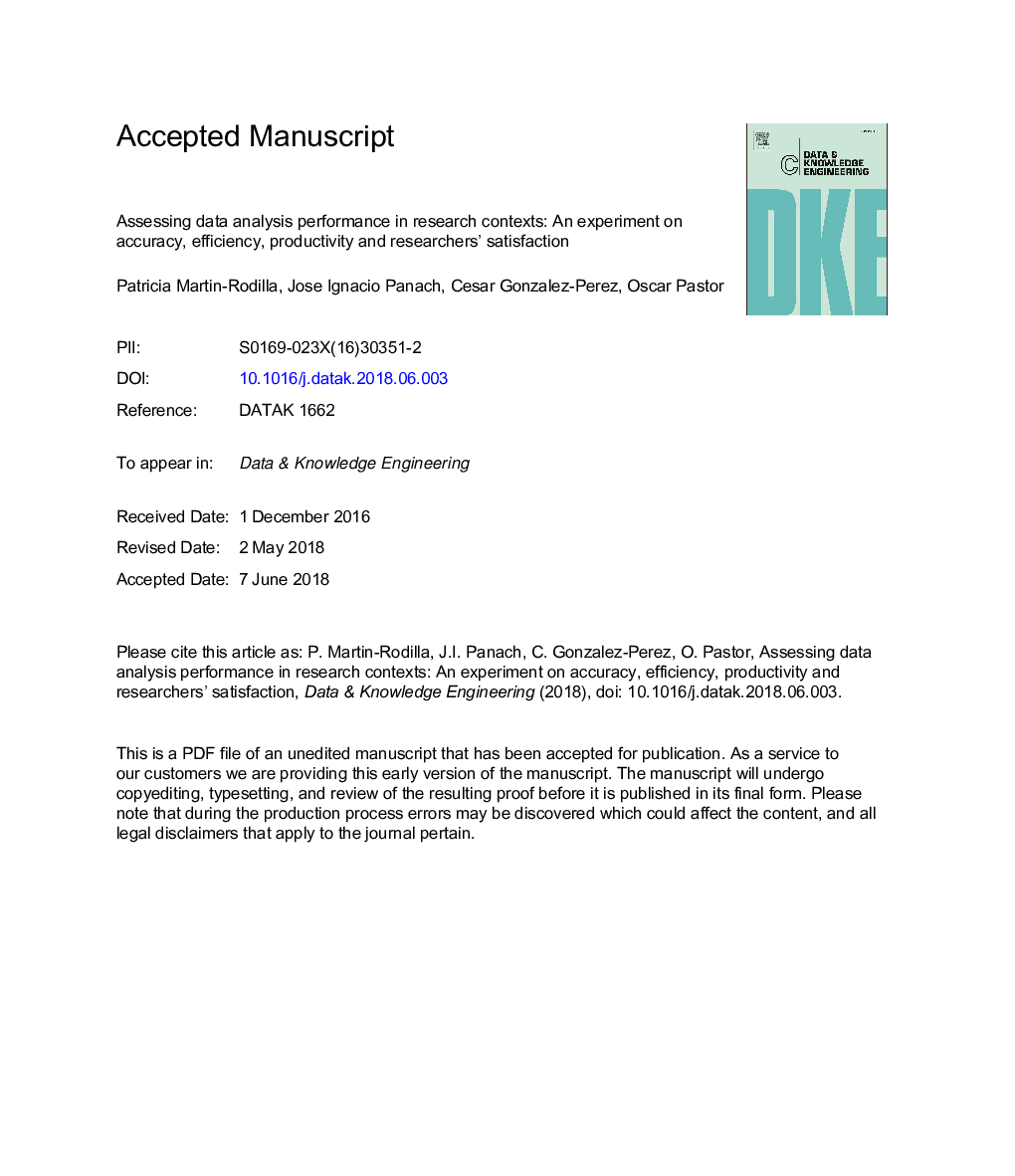| Article ID | Journal | Published Year | Pages | File Type |
|---|---|---|---|---|
| 6853908 | Data & Knowledge Engineering | 2018 | 38 Pages |
Abstract
In this paper, we evaluate the impact produced by the explicit inclusion of cognitive processes in the assistance logic of software tools design and development. We conducted an empirical experiment comparing data analysis performance using traditional software versus data analysis performance using software-assistance tools which incorporate cognitive processes in their design. The experiment is designed in terms of accuracy, efficiency, productivity and user satisfaction during the data analysis made by researchers. It allowed us to find some clear benefits of the cognitive inclusion in the software designed for research contexts, with statistically significant differences in terms of accuracy, productivity and researcher's satisfaction in support of this explicit inclusion, although some efficiency weaknesses are detected. We also discuss the implications of these results for the priority of cognitive inclusion in the software tools design for research contexts data analysis.
Keywords
Related Topics
Physical Sciences and Engineering
Computer Science
Artificial Intelligence
Authors
Patricia Martin-Rodilla, Jose Ignacio Panach, Cesar Gonzalez-Perez, Oscar Pastor,
